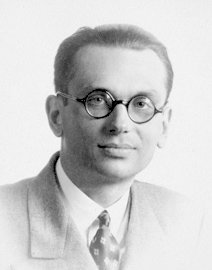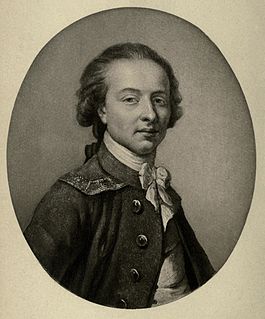A Quote by John Keats
For axioms in philosophy are not axioms until they are proved upon our pulses.
Quote Topics
Related Quotes
There are and can be only two ways of searching into and discovering truth. The one flies from the senses and particulars to the most general axioms, and from these principles, the truth of which it takes for settled and immovable, proceeds to judgment and to the discovery of middle axioms. And this way is now in fashion. The other derives axioms from the senses and particulars, rising by a gradual and unbroken ascent, so that it arrives at the most general axioms last of all. This is the true way, but as yet untried.
It cannot be that axioms established by argumentation should avail for the discovery of new works, since the subtlety of nature is greater many times over than the subtlety of argument. But axioms duly and orderly formed from particulars easily discover the way to new particulars, and thus render sciences active.
While the game of deadlocks and bottle-necks goes on, another more serious game is also being played. It is governed by two axioms. One is that there can be no peace without a general surrender of sovereignty: the other is that no country capable of defending its sovereignty ever surrenders it. If one keeps these axioms in mind one can generally see the relevant facts in international affairs through the smoke-screen with which the newspapers surround them.
The development of mathematics toward greater precision has led, as is well known, to the formalization of large tracts of it, so that one can prove any theorem using nothing but a few mechanical rules... One might therefore conjecture that these axioms and rules of inference are sufficient to decide any mathematical question that can at all be formally expressed in these systems. It will be shown below that this is not the case, that on the contrary there are in the two systems mentioned relatively simple problems in the theory of integers that cannot be decided on the basis of the axioms.
An axiomatic system comprises axioms and theorems and requires a certain amount of hand-eye coordination before it works. A formal system comprises an explicit list of symbols, an explicit set of rules governing their cohabitation, an explicit list of axioms, and, above all, an explicit list of rules explicitly governing the steps that the mathematician may take in going from assumptions to conclusions. No appeal to meaning nor to intuition. Symbols lose their referential powers; inferences become mechanical.
There are two principles on which all men of intellectual integrity and good will can agree, as a 'basic minimum,' as a precondition of any discussion, co-operation or movement toward an intellectual Renaissance. . . . They are not axioms, but until a man has proved them to himself and has accepted them, he is not fit for an intellectual discussion. These two principles are: a. that emotions are not tools of cognition; b. that no man has the right to initiate the use of physical force against others.
When a truth is necessary, the reason for it can be found by analysis, that is, by resolving it into simpler ideas and truths until the primary ones are reached. It is this way that in mathematics speculative theorems and practical canons are reduced by analysis to definitions, axioms and postulates.





































